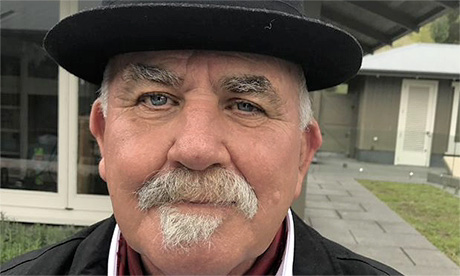Denis O’Reilly, a Pākehā now well into his 60s, linked up with Black Power because he was committed to social justice.
It was the same concern for social justice that had his brother, Laurie, who died nearly 20 years ago, becoming a lawyer and then the Commissioner for Children.
Each of the boys had many other strings to their bows. Laurie, for instance, was a significant figure in the development of women’s rugby.
But, in this discussion with Dale, Denis traces some of the moves he’s made in the course of a lifetime of fighting for the underdog.
Kia ora, Denis. I feel privileged to interview you because you’re a larger than life character who’s been leading an influential life, especially in social justice issues for Māori. But the O’Reilly whakapapa reaches way beyond Aotearoa, doesn’t it?
That’s true. The O’Reillys came from County Kerry in the south-west of Ireland, although we were originally from Brefni in Northern Ireland.
My people came out here on the Otaki and landed at Lyttleton on 8 February 1875.
They were described in the Lyttleton Times as being “a thoroughly useful class of people”.
I’d like to think I’ve fulfilled that early promise.
The whānau went down through mid-Canterbury and my family eventually settled near Fairlie in the MacKenzie Country, not far from what is now Lake Opuha.
Mum’s side were more of Scots stock.
My grandfather William Wallace Hooper got gassed in the First World War and he died early on. He’s buried in Timaru.
So Mum, Patrica Hooper, was brought up pretty much by my grandmother Ellen Hooper. Mum was a very, very intelligent woman and was educated in French by the Sacre Coeur nuns in Timaru.
My old man, another Denis, generally called Dinny, came down to Timaru as a mechanic just before the outbreak of the Second World War.
He and his brother, Bob, met my mother and her sister Dot — and the two brothers married the two sisters.
We grew up in an Irish-Catholic household.
I’m the youngest of six by some years.
We had a service station called Cassidy’s Motors and we were sort of upwardly mobile Irish-Catholics.
All the brothers and sisters did university and that sort of stuff, and I helped Dad.
From 13 or so, I worked with the old man at the service station. After school and in the weekends and school holidays.
When Dad had a slipped disc and a stroke, Mum and I basically ran the garage. We had eight adult mechanics working for us.
It was a seven-day affair and we were pumping half a million gallons of petrol a year in the 1960s. So it was pretty full on.
I went to St Pat’s in Timaru, which is now called Roncalli College.
When I left school, I trained to be a Catholic priest up at the Mission, the Marist Fathers’ seminary, at Greenmeadows in Napier.
It was a significant part of my personal development, to say nothing of my love of wine.
I see that you spent a year there. But then, in an interesting twist of fate, you ended up in Wellington with Black Power. You’re still well known for that connection. You’ve been a patched member. How did that come about?
Well, I’m a life member.
I saw that work as a continuation of what I was aspiring to do — basically trying to be a priest.
We’d been brought up with Latin-American liberation theology.
Social justice I suppose you’d call it.
Paulo Friere and all that sort of stuff. And I just saw these Māori guys being picked on.
I got a job at a gas station in Newtown and I met all these Black Power fullas who worked for a concrete company called Riteways.
They used to drink at the Tramways and I suppose that’s where the Catholic social justice thing kicked in.
I thought: “Well, this is what I’m meant to do.” And that’s pretty much what I’ve done.
Were there some negative reactions to you sidling up to, and then joining, the Black Power movement?
I don’t think my folks knew what the hell it was all about.
Mum and Dad had never been on a marae until they came to our wedding, when Taape and I got married.
There were about 300-400 Black Power there. So were Bob Jones and Tim Shadbolt and Pat Rippin and even Brian Edwards.
Then the Mongrel Mob arrived as well.
It was culture shock plus.
But we had a Catholic nuptial mass on the marae and, with that anchor, they just rolled with it. Continue reading
- Image: E-Tangata
